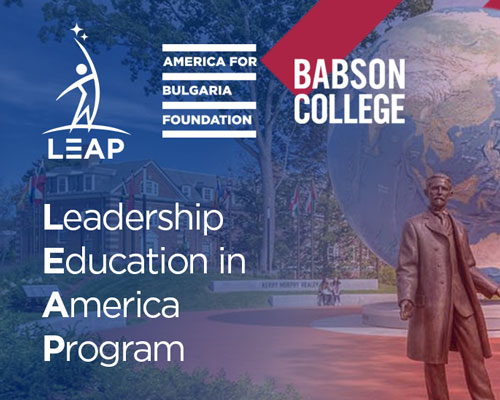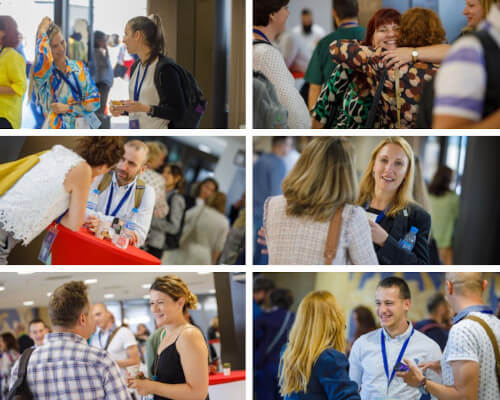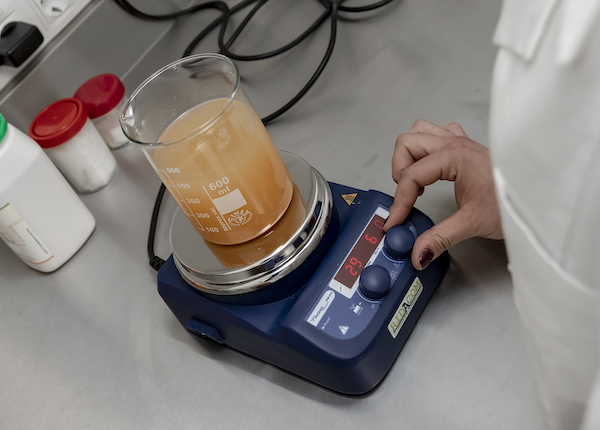 A biologist, a chemist, and a microbiologist walk into a bar. They bring their own beer.
A biologist, a chemist, and a microbiologist walk into a bar. They bring their own beer.
This is not the beginning of a joke. The beer was developed by the three scientists, and the bar is one of the places where the drink will be available from September. The beer will be produced with lactobacillus and without preservatives and will have a slightly sour taste to suit Bulgarian consumer preferences.
Craft beer with lactobacillus was one of several innovations students worked on during the innovation and entrepreneurship course at the Center for Applied Studies and Innovation (CASI) at Sofia University. For two semesters now, the Center has enabled students to test innovative products aiming to improve people’s health and lives.
CASI is a new-generation research center bringing science and entrepreneurship together. Its founder, Kiril Petkov, is a successful entrepreneur whose company ProViotic sells probiotics on four continents and who has invested in educational projects across Bulgaria for years. He founded the Center to stimulate entrepreneurship and product development in the field of biotechnology, pharmacy, and cosmetics in Bulgaria. The involvement of Rositsa Tropcheva—a promising young scientist who turned down an offer from Harvard in order to head the CASI laboratory in Sofia—was crucial to the project’s success, and so were the financial support of the America for Bulgaria Foundation and Sofia University’s partnership.
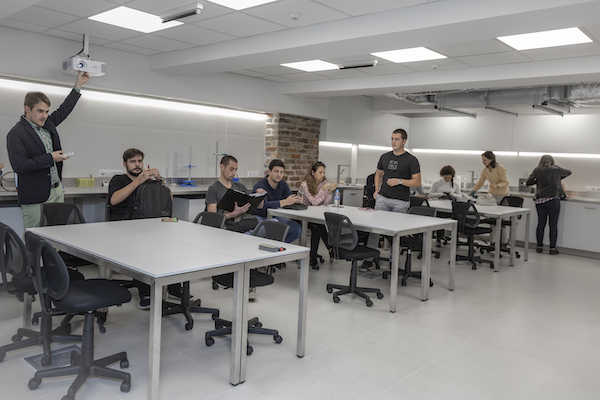 The rest is in the hands of the young researchers.
The rest is in the hands of the young researchers.
In the past year, about fifty students majoring in chemistry, biology, biotechnology, pharmacy, medicine, and food science & technology have completed CASI’s innovation and entrepreneurship course. The course curriculum introduced them to the latest trends and innovations in these fields and to the principles of successful entrepreneurship. Course lecturers included renowned researchers Professor Raina Fichorova of Harvard Medical School and Professor Nikolay Denkov of Sofia University’s School of Chemistry and Pharmacy; entrepreneurs and economists such as former economy minister Asen Vasilev and former deputy economy minister Evgeny Angelov; and professionals from the corporate world such as Dr. Simeon Stoyanov, innovation manager at Unilever. Along with attending lectures, students can apply their knowledge in practice and develop their own products at CASI’s state-of-the-art laboratory. Some of the projects students have worked on so far include an intimate lubricant, rose-water mouthwash, yogurt with algae, biodegradable food packaging, bacterial treatment of bad body odor, green cheese, and an innovative method of alcohol fermentation.
“The products are still being tested, and most of them might never get to the market,” Dr. Tropcheva explains. However, commercial success at this stage isn’t essential; what matters is that students have gone through the steps of innovation and know what it takes to develop a marketable product. The knowledge and experience they gain will be invaluable in future ventures.
“It is not enough to have a great idea with solid scientific backing; the market is also important,” Dr. Tropcheva says. “If the product you invent has only twenty potential buyers, it won’t be successful.” As Iliana, Zdravko, and Teodora, the three scientists from the beginning of the story, will tell you, CASI gave them “the perfect opportunity to focus their creative energy and [helped them] see that business and innovation go hand in hand.”
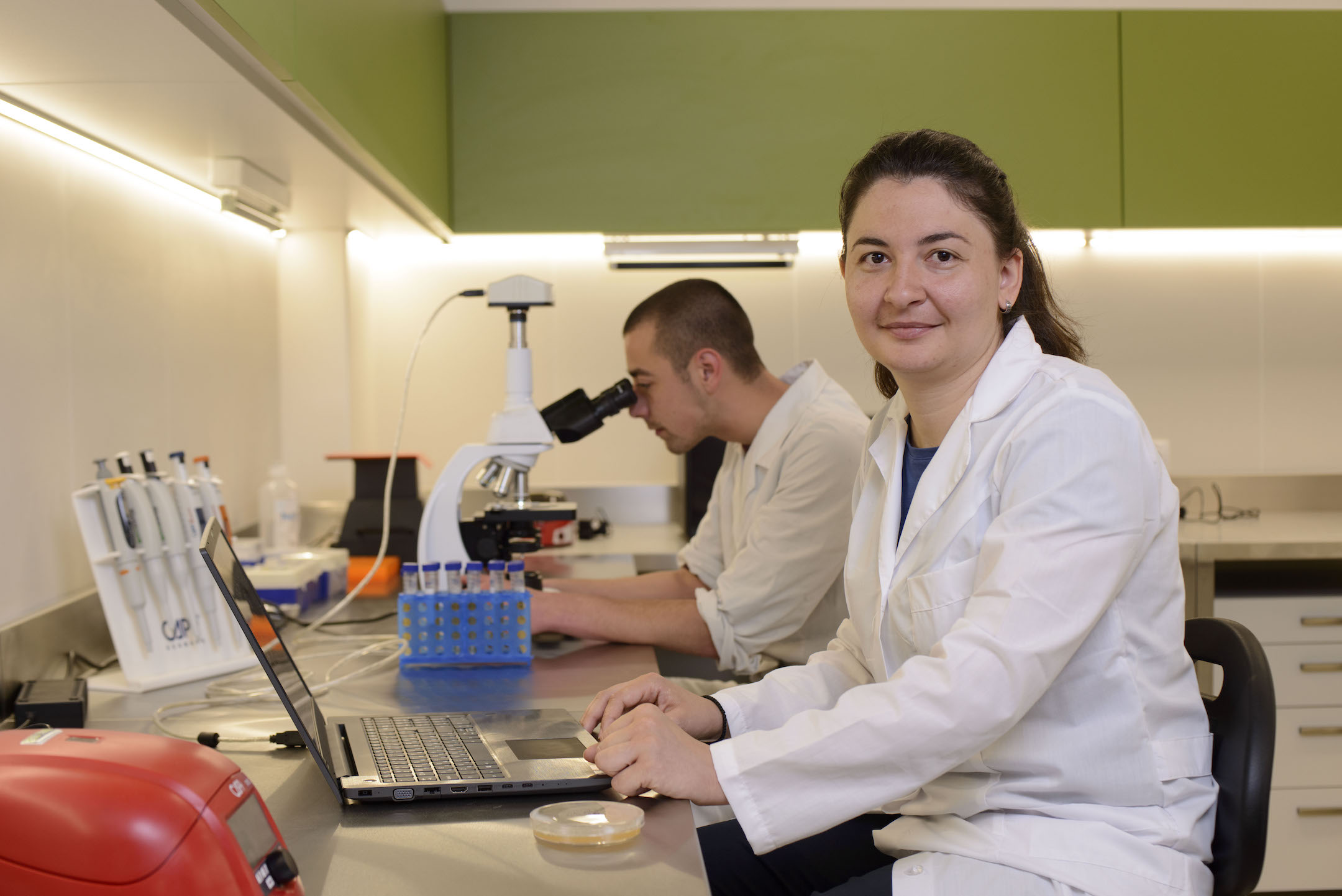 Meanwhile, the CASI team has released several successful products on the market. Bulgarian consumers can now buy humus with lactobacillus developed at the Center as well as a probiotic containing resveratrol, an antioxidant made from wine. International scientists believe that resveratrol might hold the key to the longevity of Mediterranean peoples like the French and the Italians, which explains the spike in new products containing the antioxidant.
Meanwhile, the CASI team has released several successful products on the market. Bulgarian consumers can now buy humus with lactobacillus developed at the Center as well as a probiotic containing resveratrol, an antioxidant made from wine. International scientists believe that resveratrol might hold the key to the longevity of Mediterranean peoples like the French and the Italians, which explains the spike in new products containing the antioxidant.
CASI also supported the initial research for Daye, an innovative feminine care product developed by a Bulgarian woman who received $5.5 million in financial backing from investors in Europe and the United States.
“We want CASI to be a place that fosters innovation. We want to help those whose innovations will go down in history,” CASI founder Kiril Petkov says. Dr. Tropcheva agrees, adding, “This will happen as long as inspired people choose to remain here. When you’re passionate about something, success is your only option.”
Photos 1 & 2 by Yuliyan Hristov, photo 3 by Dobrin Kashavelov
Corrections: July 22, 2019
